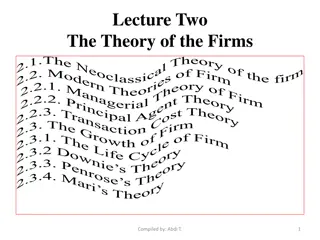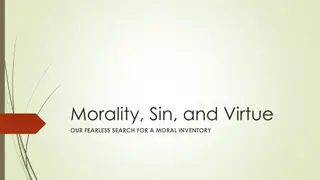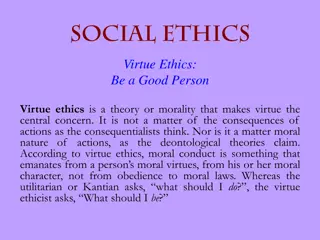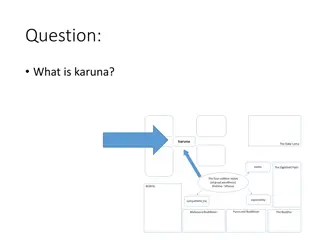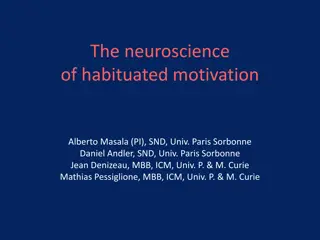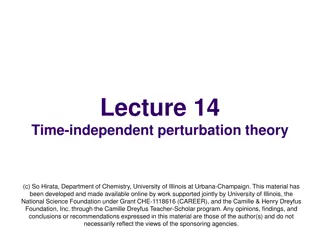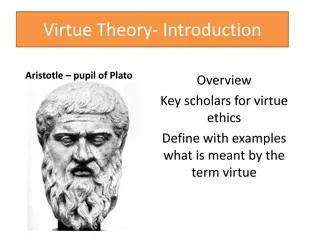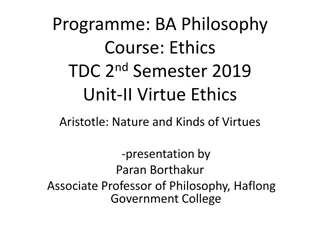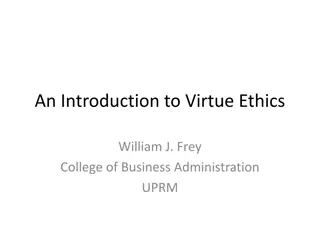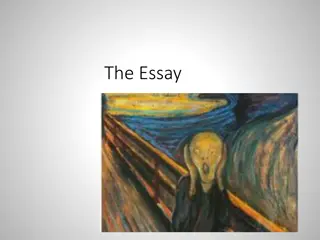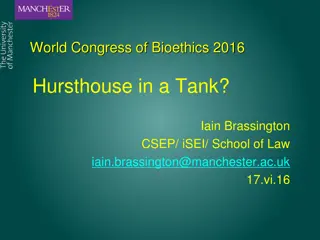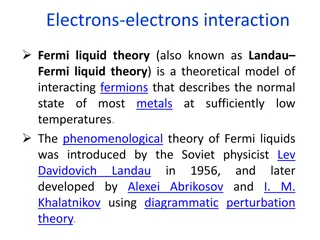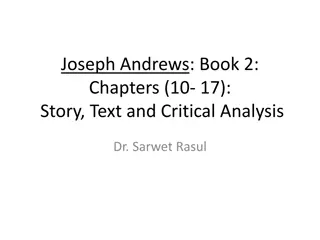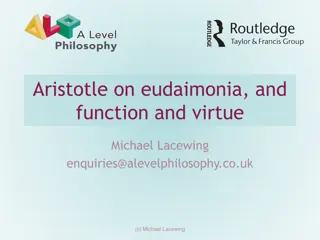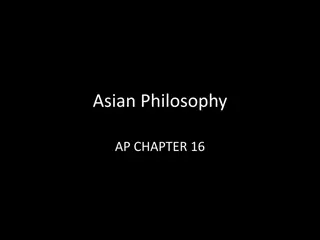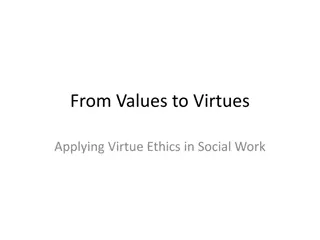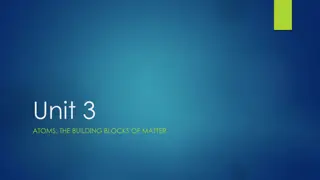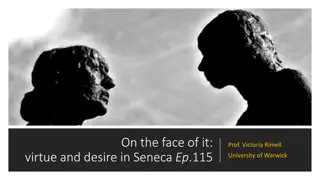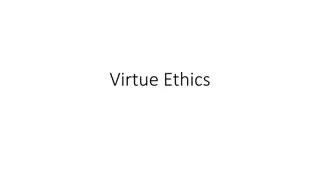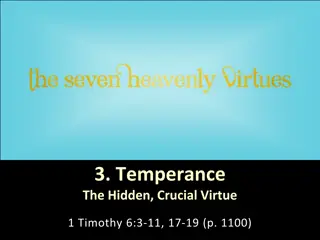Ginzburg Landau phenomenological Theory
The Ginzburg-Landau phenomenological theory explains superconductivity and superfluidity as distinct thermodynamic phases. It focuses on phase transitions characterized by singularities in specific heat at the transition temperature. Derived from BCS theory, it quantifies condensation energy, emphas
1 views • 38 slides
Crystal Field Theory in Transition Metal Complexes
Crystal Field Theory (CFT) explains the colors and magnetic properties of transition metal complexes. It focuses on the energy changes in d-orbitals of metal ions caused by surrounding ligands. This theory, developed in 1929, provides insights into the bonding interactions in complex compounds. The
10 views • 44 slides
Evolution of Mathematical Theories and Proof Systems
Development of mathematical theories such as model theory, proof theory, set theory, recursion theory, and computational complexity is discussed, starting from historical perspectives with Dedekind and Peano to Godel's theorems, recursion theory's golden age in the 1930s, and advancements in proof t
2 views • 29 slides
Introduction to Organizational Behavior: Management Theories and Practices
Explore the evolution of organizational behavior from early management theories to contemporary practices. Understand the historical foundations and relevance of management theory in shaping workplace dynamics. Delve into key concepts like Scientific Management, Administrative Management, Bureaucrat
1 views • 28 slides
Theories on the Origin of State: Divine, Force, Patriarchal, and More
Various theories such as Divine Origin, Force Theory, Patriarchal Theory, and others explain the origin of the state. Divine theories attribute state creation to God, while Force Theory emphasizes the strong subjugating the weak to establish authority. Each theory offers unique perspectives on the h
1 views • 24 slides
Psychological Theories of Criminality: Understanding the Roots
Psychological theories of criminality delve into the association between intelligence, personality, learning, and criminal behavior. Major theories include Psychodynamic Theory by Freud, Behavioral Theory by Bandura, and Cognitive Theory by Kohlberg. These theories explore how unconscious mental pro
1 views • 20 slides
Austin's Theory of Law by Rinkey Sharma: An Overview
Austin's Theory of Law, presented by Rinkey Sharma, delves into the Imperative Theory of Law as proposed by Austin, known as the father of English jurisprudence. It explores General and Particular Jurisprudence, Austin's definition of law, and the elements of positive law, emphasizing the concepts o
0 views • 11 slides
Theories of International Relations Overview
The field of International Relations (IR) encompasses various theories that seek to explain global phenomena, drawing from disciplines like history, philosophy, and economics. Theory, derived from contemplation and speculation, organizes ideas to explain issues such as state emergence, conflict caus
1 views • 47 slides
Theory of Firms: Neoclassical vs. Modern Approaches
The theory of firms is explored through the Neoclassical and Modern perspectives. Neoclassical theory focuses on profit maximization, while Modern theory delves into managerial, principal-agent, and transaction cost theories. The discussion covers criticisms of Neoclassical theory and the essential
1 views • 79 slides
Morality, Sin, and Virtue: A Journey of Self-Discovery
Dive into the profound exploration of morality, sin, and virtue, uncovering the essence of self-reflection and ethical understanding. From delving into the definitions of these concepts to understanding the nature of sin and virtue, embark on a transformative path towards enlightenment and inner gro
1 views • 22 slides
Theories of Causation in Psychological and Social Sciences
Overview of theories of causation categorized into psychological, social psychological, and sociological perspectives. Psychological theories focus on instinctive, biological, and psychological qualities of abusers, including Attachment Theory, Psychodynamic Theory, Social Learning Theory, and Situa
0 views • 15 slides
Virtue Ethics in Aristotle's Philosophy
Virtue ethics places virtue at the center of morality, emphasizing moral character over obeying laws or focusing on consequences. Aristotle's influence on virtue ethics is significant, highlighting the importance of striving to be a virtuous person whose actions stem from a virtuous character. Accor
6 views • 24 slides
Political Theory through a Contextual Approach
Exploring G.H. Sabine's perspective on political theory through a contextual approach, emphasizing the importance of historical context and societal influences. Sabine argues that while political theory evolves with its contemporary politics, it should be analyzed within its specific time and social
0 views • 9 slides
Evolution of Light Theory: From Wave Theory to Quantum Theory
At the turn of the century, the discovery of the photoelectric effect challenged the wave theory of light, leading to the development of the quantum theory by Max Planck and Albert Einstein. This new theory introduced the concept of discrete energy units known as quanta, bridging the gap between wav
2 views • 62 slides
Karuna in Buddhist Philosophy
Karuna, a key virtue in Mahayana Buddhism, emphasizes recognizing and alleviating the suffering of others. Bodhisattvas exemplify this virtue through selflessness, while figures like Amitabha Buddha embody compassion through acts like welcoming believers to Sukhavati. The concept of karuna is closel
0 views • 14 slides
Dp-branes, NS5-branes, U-duality, and M-Theory Overview
Overview of Dp-branes, NS5-branes, and U-duality derived from nonabelian (2,0) theory with Lie 3-algebra. Introduction to M-theory, including M2-branes and M5-branes in the strong coupling limit. Discussion on BLG theory, Lorentzian Lie 3-algebra, and the ABJM theory for M2-branes.
3 views • 32 slides
The Neuroscience of Habituated Motivation in Virtue Cultivation
Exploring the intersection of Aristotelian theory, cognitive neuroscience, and moral philosophy, this research delves into the conditions and mechanisms underlying the cultivation of virtuous habits through apprenticeship. By leveraging diverse expertise in philosophy, neuroscience, and cognitive sc
3 views • 21 slides
Time-Independent Perturbation Theory in Quantum Mechanics
Perturbation theory is a powerful tool in solving complex physical and mathematical problems approximately by adjusting solutions from a related problem with known solutions. This theory allows for more accurate approximate solutions by treating the difference as a small perturbation. An example inv
0 views • 19 slides
Ethical Theories: Divine Command vs. Virtue Theory Explained
Divine Command Theory asserts that morality is derived from God's commands, contrasting with Virtue Theory which focuses on developing moral virtues to achieve human flourishing and excellence. Divine Command Theory relies on religious texts, while Virtue Theory emphasizes the cultivation of virtues
0 views • 24 slides
Virtue Ethics and Aristotle's Virtue Theory
Delve into the world of Virtue Ethics with a focus on Aristotle's Virtue Theory, exploring the concept of virtue, key scholars in virtue ethics, and the development of virtues. Discover the Golden Mean, Eudaimonia, and the Beatitudes in relation to virtue theory, alongside discussions on moral decis
0 views • 21 slides
Aristotle's Virtue Ethics: The Nature and Kinds of Virtues
Aristotle's virtue ethics discusses the nature of virtues as a disposition unique to humans that enables them to function well according to reason. Virtue involves finding the mean between excess and deficiency, not endorsing mediocrity. It emphasizes that virtues are acquired through habitual pract
1 views • 18 slides
Exploring Virtue Ethics and Human Flourishing
Delve into the realm of virtue ethics, uncovering the significance of moral education, self-excellence, and rethinking traditional moral theories. Learn how virtues shape our actions, character, and perception of ethical dilemmas, ultimately leading to human fulfillment and happiness.
1 views • 21 slides
Civic Virtue and Institutional Design in Early Modern Governance
Delve into the complexities of civic virtue and institutional design in early modern governance through a 3,000-word essay. Analyze the necessity of civic virtue within the state and consider contrasting perspectives on whether institutional design can replace it. Use primary texts to support your a
0 views • 32 slides
Ethical Reflections on Ectogenesis and Moral Status of the Foetus
Delve into the ethical considerations surrounding ectogenesis as a potential alternative to natural gestation. Explore the implications on the moral status of the foetus, touching upon viewpoints from various scholars like Rosalind Hursthouse. Reflect on the significance of the mother's body in dete
0 views • 11 slides
Fermi Liquid Theory in Interacting Fermion Systems
Fermi liquid theory, also known as Landau-Fermi liquid theory, is a theoretical model that describes the normal state of metals at low temperatures. Introduced by Landau and further developed by Abrikosov and Khalatnikov, this theory explains the similarities and differences between interacting ferm
0 views • 23 slides
Analysis of Selfishness and Virtue in Chapters 10-11 of Joseph Andrews
The text from Chapter 10 of Joseph Andrews explores themes of selfishness, materialism, and virtue as a group confronts the aftermath of an adventure. The characters argue over their shares of an 80-pound reward, revealing their self-serving nature. The chapter delves into the motivations and action
0 views • 41 slides
Aristotle's Concept of Eudaimonia and Virtue
Aristotle's philosophy delves into the concept of eudaimonia, which is not mere pleasure or wealth but the state of living well and flourishing. Eudaimonia is achieved through the exercise of virtues, qualities that aid in fulfilling one's function or characteristic activity. This pursuit of eudaimo
0 views • 10 slides
Confucius: Key Concepts and Philosophical Ideals
Confucius, born during the Zhou Dynasty, emphasized virtue, social reform, and humanism in his teachings. He focused on values like Ren (human-heartedness) and key concepts such as De (virtue) and Li (propriety). By studying human practices, he sought to achieve goodness and harmony. Explore the phi
0 views • 23 slides
Applying Virtue Ethics in Social Work: From Values to Virtues
Exploring the application of virtue ethics in social work, this content delves into the transition from foundational values to virtuous character traits. It discusses the importance of moral qualities, virtues, and practical wisdom in making ethically informed decisions. Highlighted are the perspect
0 views • 14 slides
Computational Learning Theory: An Overview
Computational Learning Theory explores inductive learning algorithms that generate hypotheses from training sets, emphasizing the uncertainty of generalization. The theory introduces probabilities to measure correctness and certainty, addressing challenges in learning hidden concepts. Through exampl
0 views • 43 slides
Automata Theory and Theory of Computation Overview
This course overview covers concepts in automata theory and theory of computation, including formal language classes, grammars, recognizers, theorems in automata theory, decidability, and intractability of computational problems. The Chomsky hierarchy, interplay between computing components, modern-
0 views • 42 slides
Virtue Ethics in Bigelow's Films: A Moral Exploration
The discussion delves into the virtue ethics portrayed in Kathryn Bigelow's films "The Hurt Locker" and "Zero Dark Thirty." It raises questions on the ethics of actions taken in the war on terror, particularly the controversy surrounding the depiction of torture as crucial in the killing of Bin Lade
0 views • 12 slides
Theories of Interest in Microeconomics II
Explore various theories of interest in economics, including the Classical Theory, Liquidity Preference Theory by Keynes, Productivity Theory, Abstinence Theory, Time-Preference Theory, Fisher's Time Preference Theory, and the Loanable Fund Theory. These theories offer different perspectives on the
1 views • 6 slides
The Evolution of Atomic Theory
Delve into the historical journey of atomic theory starting from Democritus and Aristotle's views to modern advancements proving some aspects of Dalton's theory incorrect. Learn about key laws and theories such as the Particle Theory of Matter, Dalton's Atomic Theory, and JJ Thomson's discoveries, s
0 views • 30 slides
Exploring Virtue and Desire in Seneca's Philosophy
Seneca presents a nuanced version of Stoicism, allowing for human interaction and love while emphasizing the purity of love separate from bodily desires. Through Seneca's writings, the distinction between love and desire is made clear, touching on themes of body, mind, desire, and veneration. The in
1 views • 15 slides
Macromechanical Analysis of Lamina and Tsai-Hill Failure Theory Overview
The Tsai-Hill failure theory is based on the strengths of a unidirectional lamina, incorporating longitudinal and transverse tensile and compressive strengths, as well as in-plane shear strength. This theory, derived from the distortion energy theory, provides criteria for determining lamina failure
0 views • 15 slides
Insights into Virtue Ethics and Critiques of Kantian Morality by Philippa Foot
Philippa Foot, a key figure in the modern revival of Aristotle's virtue ethics, critiques the Kantian approach to morality. She emphasizes the importance of motivation in cultivating virtues, arguing that feeling bound by morality stems from wanting to lead a flourishing life. Through her works, Foo
0 views • 14 slides
Critique of Ethical Schools: A Comparative Analysis
This article explores three main ethical schools - utilitarianism, deontology, and virtue theory - and delves into their distinct emphases and elements. It highlights the differences in how each school views lying and ethical decision-making. Additionally, it discusses the incorporation of ethical p
0 views • 45 slides
Forms of Moral Reasoning and Ethics in Decision-Making
Explore the main forms of moral reasoning in ethical decision-making, including virtue ethics, deontological reasoning, and teleological reasoning. Understand the importance of developing ethical virtues and principles in guiding behavior. Delve into examples of reasoning from virtue and deontologic
0 views • 28 slides
Temperance: The Hidden Virtue of Moderation
Temperance is a crucial moral virtue that helps in moderating desires and achieving a balance in life. It empowers the will to control impulses and maintain honorable limits in pursuing pleasures, as evidenced in the New Testament and Christian teachings. Through moderation and sobriety, temperance
0 views • 28 slides








